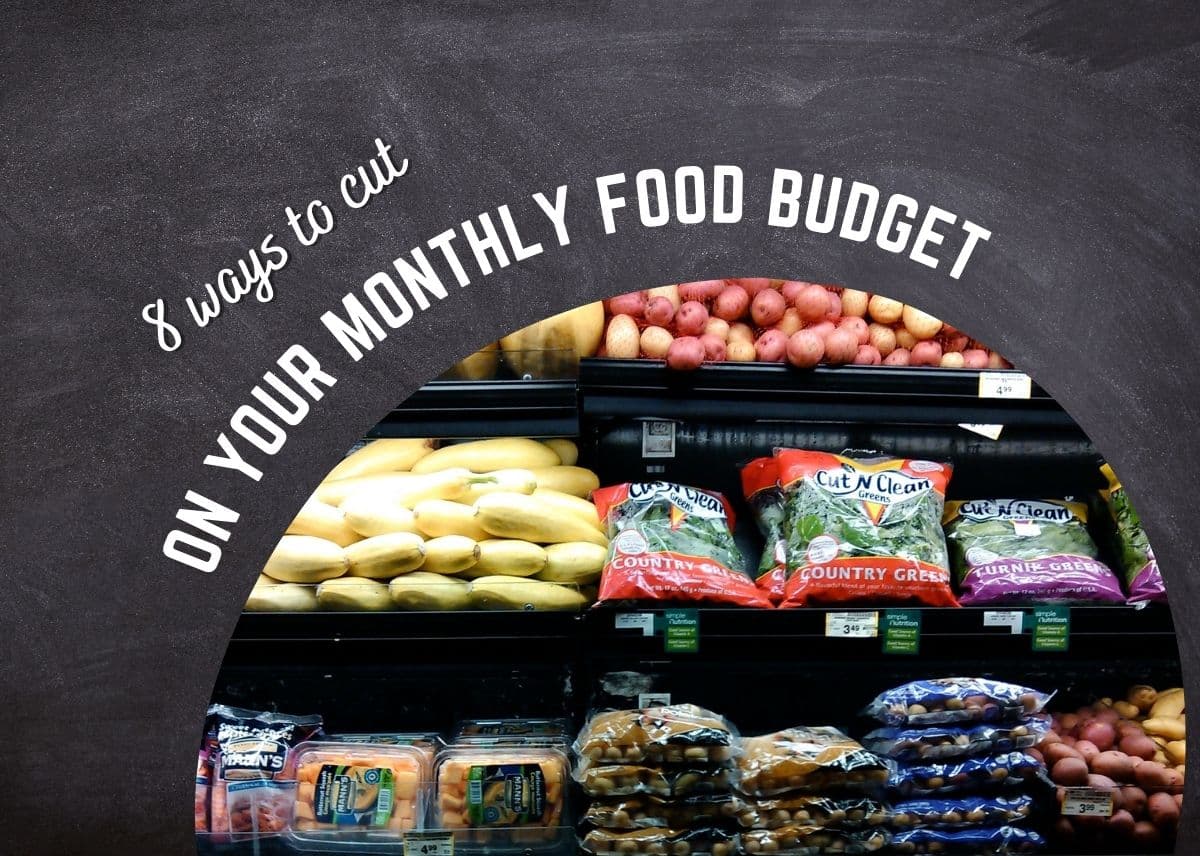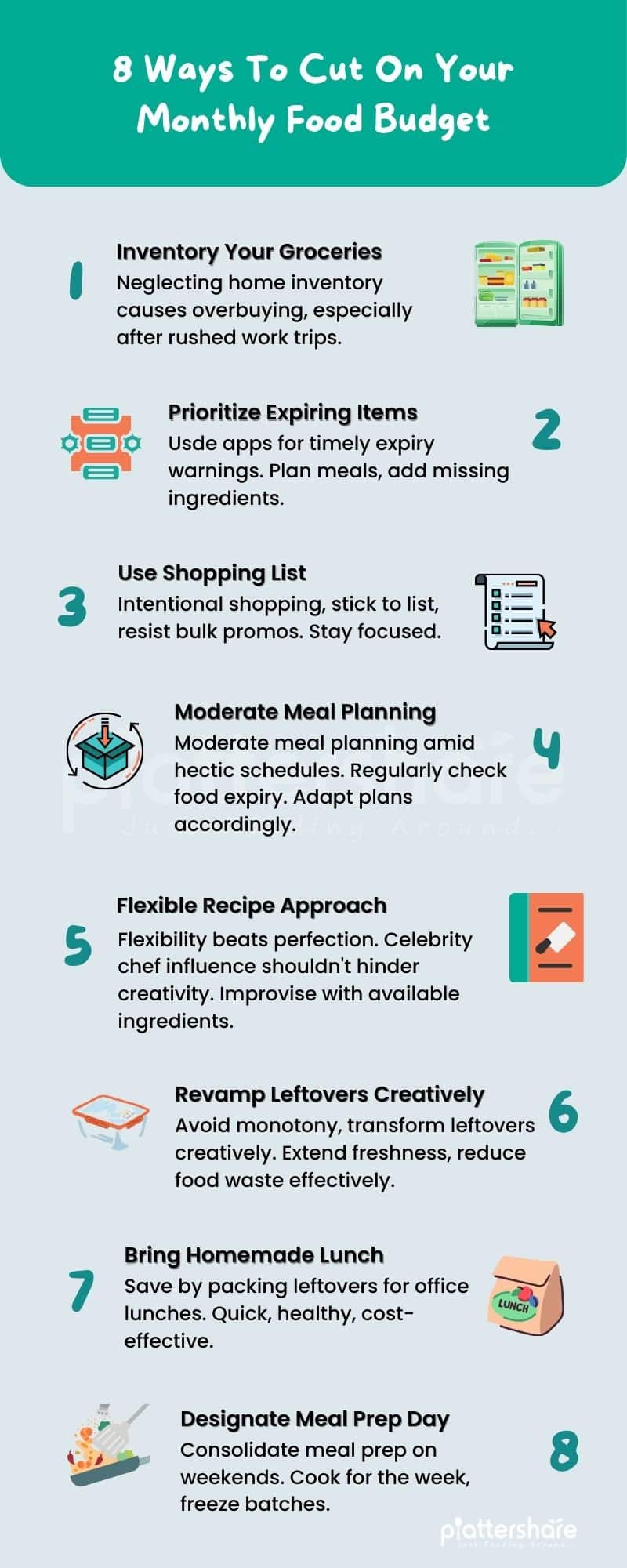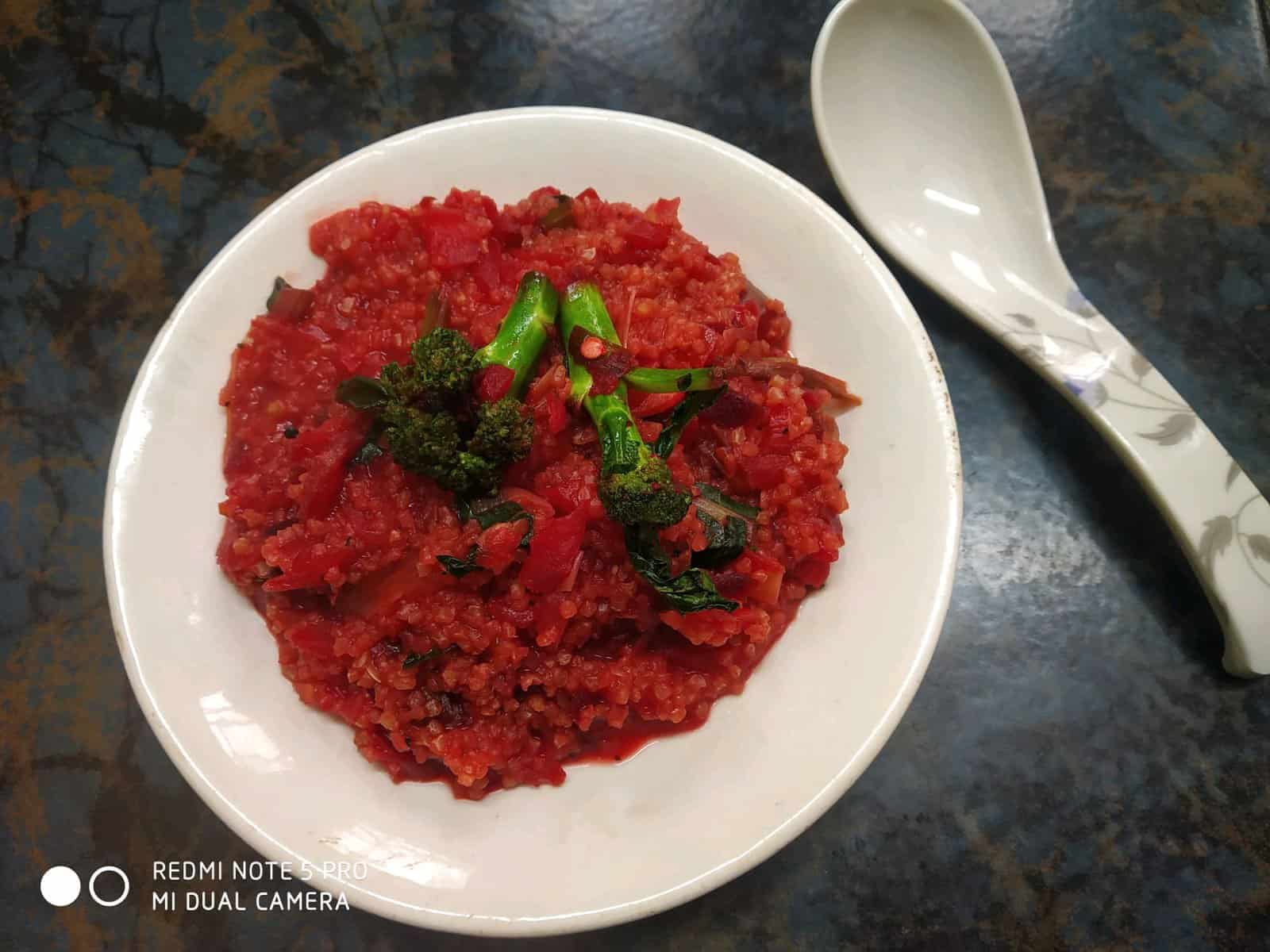8 Ways To Cut On Your Monthly Food Budget

Ways To Cut On Your Monthly Food Budget? We have a deeply entrenched notion that food is a basic need. So, even if we are buying too much food, we tell ourselves that it is necessary to our diet. But the developed countries currently have 50-100% more food available than the caloric needs of their population.
Table of Contents
With so much overproduction, food manufacturers and retailers are motivated to create excess demand. The consequence of this is huge food waste, growing obesity and unreasonably high food budgets.
When we regularly buy much more food than we can eat within its expiry period, we allow 30% of the food we buy to end up in the garbage. So, to change this, we need to eradicate the practice of food overbuying.
Just by doing so, we will be able to reduce our food budgets by at least 20% and the food waste we create by 70%. And this is without making any changes in the type and quality of food we buy. Here are 8 ways how to do it.
1. Check What Food You Already Have at Home
The main reason we overbuy food, is because we go to the grocery store without first checking what we have at home. We often shop on our way home from work, so going through the fridge is not an option. But apps such as CozZo help you access your kitchen inventory remotely by keeping tabs on all food, ingredients and cooked meals you already have.
2. Always Start with Food that is About to Expire and Shop Around it
When choosing an app, it is important to go for a solution that gives you warnings on food that is about to expire and needs your urgent attention. If you have chicken breasts at home, that need to be cooked tonight, you will get a strict warning.
Decide if you are turning them into rice curry or serving them with grilled veggies and add just the missing ingredients to the shopping list. Once again, CozZo does a great job here.
3. Always Go Grocery Shopping with a List
Don’t go shopping just because you have the faint feeling you don’t have enough food at home. Make a shopping plan of what you really need and stick to it. That way you will be immune to all the bulk food promos you know you don’t need now.
4. Meal Plan, but Not Too Much
A lot is being written on the benefits of precise meal planning. But everything needs to be done in moderation. We live in hectic times and unforeseen circumstances often put off even the best meal plan intentions. So, make a daily habit of checking food that is approaching its expiry and decide if you will freeze it, have it packed for lunch or turn into a new dish.

5. Loosen Up on Recipes
Celebrity chef culture is big right now and it is often intimidating us into following recipes too strictly. But recipes are just someone’s take on a dish, they are not the Gospel.
Remember, no dish was ever spoiled by an extra carrot from the bunch you’ve bought. If you have white onions at home, but the recipe suggests red, why not get a bit creative in this round! Do your best to utilize the ingredients that you already have.
6. Don’t Cook from Scratch, Turn Your Leftovers into A New Dish
Eating the same dish for more than 2 nights in a row can get a bit daunting. Too often, once we get to that point, we start pretending that the meal is not there, until it is absolutely spoiled and needs to be binned. So, give your dish a makeover by turning it into something new. With some eggs, virtually any dish can be turned into a fabulous and creative frittata.
7. Bring Your Own Lunch from Home
Office lunches are a great way to socialize with colleagues, but they also tend to add up to a significant cost in your monthly food budget. So, especially if you know you won’t have time for a regular lunch break, throw your dinner leftovers into a lunch box and go for a quick and healthy lunch the next day. The last week of the month you will be glad you did.
8. Set a Dedicated Meal Prep Day
Spending 30-40 minutes every day in food preparation can be a turn off. So why not set Sunday afternoon for a more extensive food prep spree? You can cook 2 or 3 dishes for the week and put aside batches to freeze to be utilized on emergency nights.
When cooking a weekly menu, you will make better use of all your ingredients and will have a reserve of guilt-free lazy evening ahead of you.
Also Read:
- How to Set and Stick With a Monthly Food Budget
- 6 Simple Ways To Eat Healthy On A Tight Budget
- Meals On A Budget You Can’t Go Wrong With
Articles You May Also Like
Recipes You May Also Like
One comment
Leave a Reply
You must be logged in to post a comment.












Really useful tips! App sounds interesting, going to download.